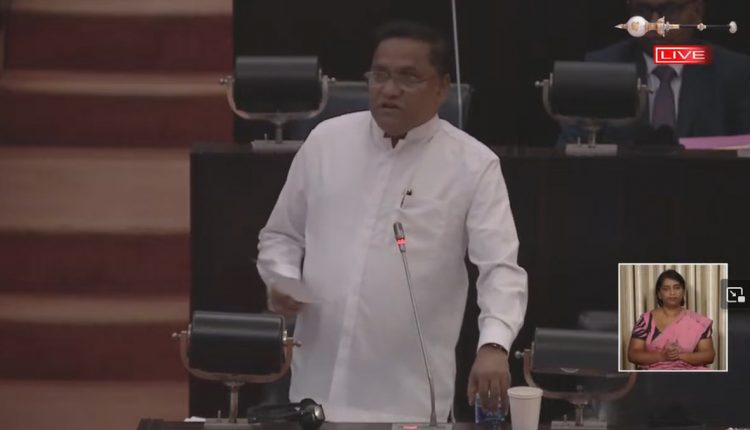Sri Lanka asks India to raise FTA apparel export quota to 50mn pcs after Trump tariff
COLOMBO – Sri Lanka has requested India to expand the quota to export under the Indo-Lanka Free Trade Agreement to 50 million units from the current 8 million after President Donald Trump slapped a 44% tax on the island, Foreign Minister Vjitha Herath said.
“From the reciprocal tax imposed by America, there is an impact on our exports,” Minister Herath told Parliament Tuesday (8).
“With that, we had discussions with India. Under the (Indo-Lanka) Free Trade Agreement, we had a quantity of 8 million pieces. We are fully utilizing it.
“We requested the Indian government to increase the quota to 50 million pieces because this agreement was signed 25 years ago, and now the market has expanded.
“If not, we have requested facilities to increase exports by 500 million dollars.”
India was slapped with a 27% tax under the formula used by Donald Trump, which was based on the trade deficit divided by the imports to the US, which is claimed to represent tariff and non-tariff barriers imposed by India.
Compared to Sri Lanka, 44%, India has a substantial advantage in exporting to the US. Several Sri Lankan firms also operated out of India, exporting to the rest of the world.
President Trump is trying to create a Sri Lanka-style protectionist utopia, in a deeply Mercantilist belief that trade deficits are bad.
The US has not counted services imported from America in the calculation. The EU is planning to hit back at US services.
However, the US is the world’s second-largest exporter after China. It lost first place in 2009, soon after the housing bubble burst.
Sri Lanka was to meet officials of the Office of the US Trade Representative for the South Asia region on Tuesday night to formally submit proposals on how to reduce tariff barriers and reduce the import duties, Deputy Minister for Economic Development Anil Jayantha told parliament.
Trump’s tariffs are set to go into effect on April 9. Pending the imposition, US buyers have told Sri Lanka exporters to suspend their shipments, hoping for a last-minute reprieve.
Sri Lanka’s highest import duty is only 20%, but the country has imposed high CESS and Port and Airport Development levies, making up a bewildering array of taxes on some products which are produced by some business interests close to the politicians under the Rajapaksa regime.
These include dairy products, shoes and building materials as well as grains such as maize, which has contributed to protein malnutrition of little kids of poor families, according to critics.
Sri Lanka’s so-called de-liberalization started when macroeconomists in the Treasury bank slapped new taxes through a 25-page gazette in November 2024 after money printing triggered forex shortages.
The Sri Lanka taxes were also slapped like an ‘executive order’ as Trump did.
-economynext.com



Comments are closed, but trackbacks and pingbacks are open.